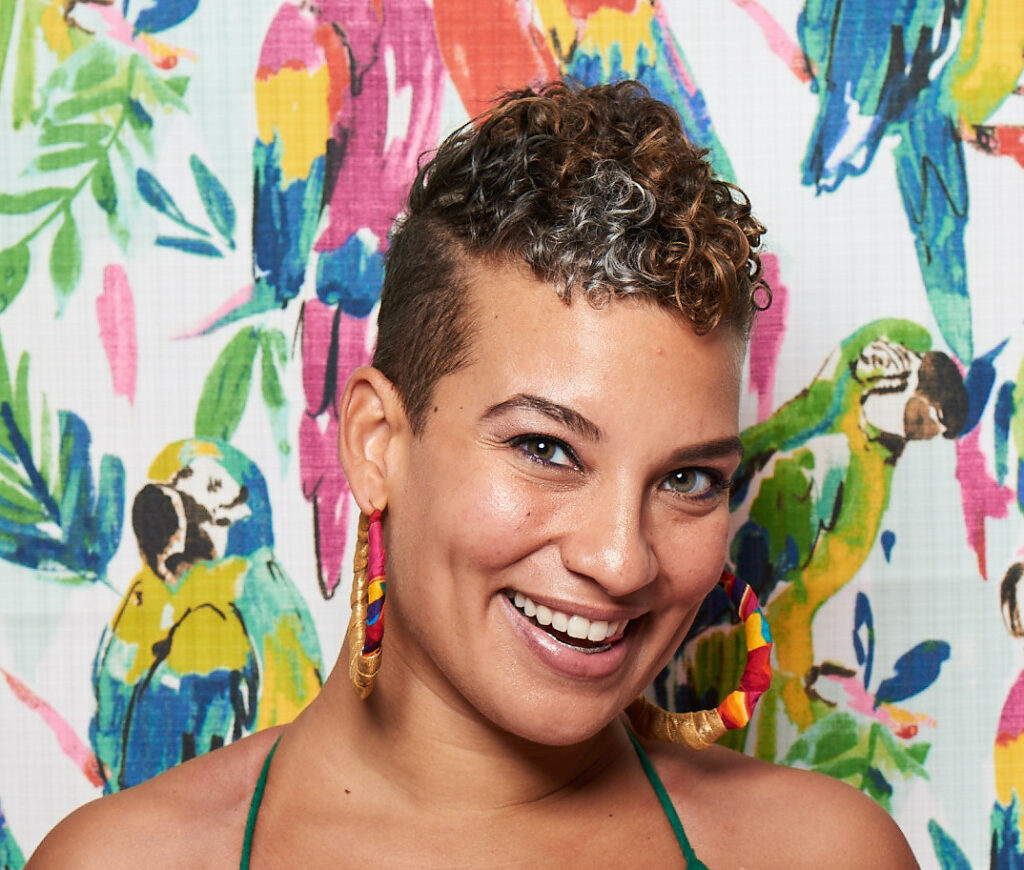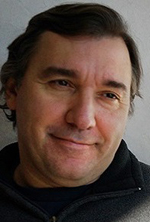Clark commissions work by Eljon Wardally ’03

Eljon Wardally ’03 never thought of writing for a living. After she graduated from Clark, where she majored in communications and culture with a minor in theatre arts, she planned to pursue acting.
But in 2010, she had a stroke. That’s when her goals changed.
“That put me on the path to writing because I thought my ability to write would be taken away from me because of the stroke,” says Wardally. “So, when I was recovering, I said, ‘If I am able to write after this, I’m going to pursue it full force.’”
Since then, Wardally has been writing plays and screenplays. She’s a four-time O’Neill finalist and her most recent short, “America in Noir,” was featured in Vanity Fair in 2020. Her work also includes writing for MLB, MTV and the award-winning film and web series “Docket 32357.” This spring, she’s returning to Clark as the Department of Visual and Performing Arts produces “Big Black Balloon,” a play Wardally wrote in 2013. The story follows Henry and Cleo, whose insecurities trigger imaginary friends to return and take over their lives as they share a studio apartment in Los Angeles.
“Big Black Balloon” is being produced through the Michelson Commission, which biennially awards $2,000 to a young Black playwright, preferably a woman, to develop a play at Clark. The play must have roles that are racially diverse and age-appropriate to be cast in the Clark community. The commission is made possible by the David and Goldie Michelson’ 36 Drama Fund, endowed by Goldie Michelson, M.A. ’36.

During her time at Clark, Wardally took an improv class with theatre professor Gino DiIorio ’83, which was then part of her plan to become an actress.
“I kept finding myself returning to the text and asking questions about character and story and not really realizing that I wanted to write instead of act,” recalls Wardally, who received her MFA in playwriting from Fordham University as part of that program’s inaugural class.
She and DiIorio kept in touch. Last year, DiIorio asked if Wardally had anything the Clark theatre community could use for reading; “Big Black Balloon” was read over Zoom, and DiIorio was drawn to it.
“It’s about a healthy relationship to food. It’s about a healthy relationship to exercise. It just seemed like a really interesting juxtaposition, and I like Eljon’s writing,” he says.
Wardally feels the play is relatable because adults often lose the comforts of childhood, things like imaginary friends and stuffed animals. “Big Black Balloon” explores what happens if those comforts were to come back.
“I’m really excited, especially because the cast is so diverse — and that is something I definitely wish there had been more of at Clark when I was there. I’m excited to bring a diverse show to the university and to the entire study body,” says Wardally.
Wardally was taking a playwriting workshop when she came up with the idea that sparked “Big Black Balloon.” While brainstorming, a black balloon appeared in her mind.
“All of a sudden, I thought, ‘Wait a minute, that can come across as an insult if someone calls you a big black balloon,’” she says. Wardally ran with the idea.
As a writer who tries to shine a light on topics people shy away from, Wardally decided to explore body dysmorphia in the play.
“We all know about women and body image, but we never talk about body dysmorphia in men, which is a very real thing. So, I decided to tilt the glass, flip it, and have the play be about a Black man who has severe body dysmorphia and was called a ‘big black balloon’ when he was younger,” says Wardally.
That’s where the imaginary friend for protagonist Henry comes in. Henry’s imaginary friend is a trainer who supports his destructive behaviors around body image. Meanwhile, supporting character Cleo aspires to be a celebrity or model; her imaginary friend is an agent who tells her she is wonderful.
Jackie Davis will direct “Big Black Balloon,” which is slated to open in March. The production will be subsidized with support from the Barr Foundation and the Worcester Cultural Coalition.
Wardally hopes the play will encourage self-reflection and give playgoers more knowledge about body dysmorphia.
“We all have an inner dialogue, and that inner dialogue is basically an imaginary friend. It’s just taking a different form,” she says.
Previous Michaelson Commissions include John AEDkoje’s “An American in Wisconsin” and Lenelle Moise’s “K.I.S.S.I.N.G.”


